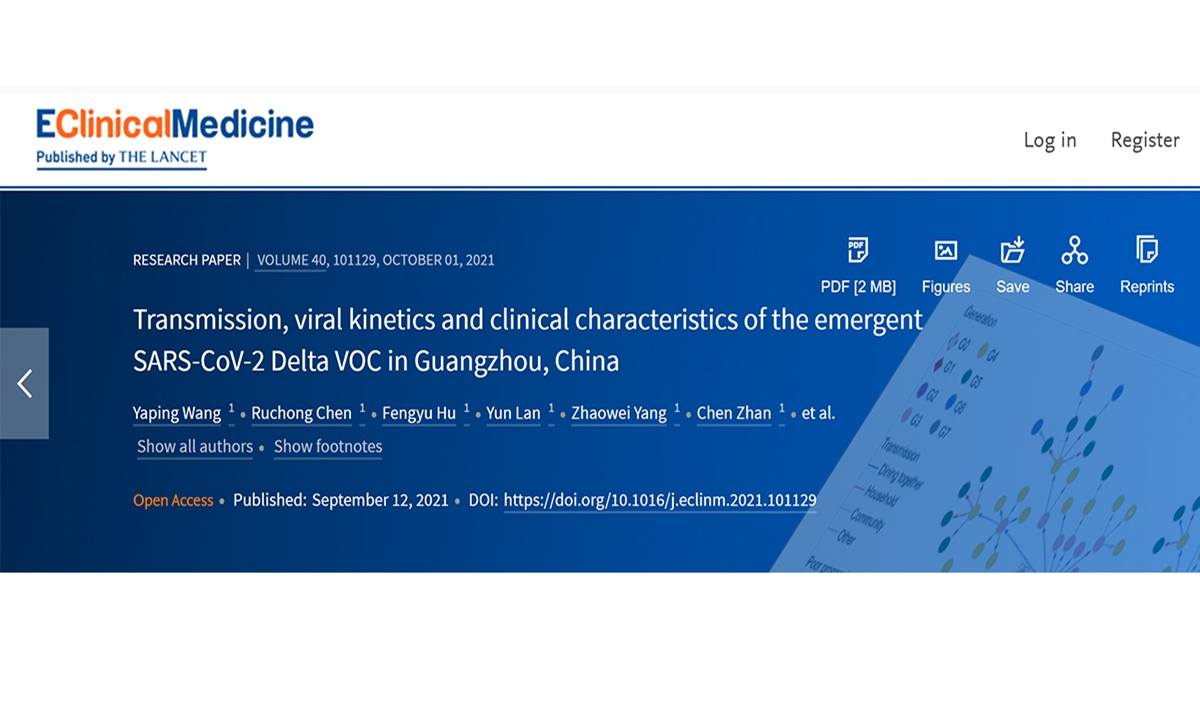Top Chinese epidemiologists carry out world’s first accurate mapping of complete transmission chain of Delta variant

Screenshot from thelancet.com
The study is based on a mass infection caused by the Delta strain that started in Guangzhou, South China’s Guangdong Province, on May 21 and was under control by June.
The research team combined epidemiological and viral genome sequencing technologies to precisely map the complete transmission chain of the Delta variant strain, which is a world’s first. The team also combined clinical resources to characterize the clinical features and viral kinetics of the cases in the outbreak in multiple ways.
The researchers observed that the transmission of the virus in the outbreak was mainly through direct and interproximity contact, with 30.8% of infections occurring through gathering meals, followed by household contact (30.13%), community transmission (18.59%), and other transmission routes including work and social contact (19.87%), respectively.
The Delta variant had a shorter incubation period and a more rapid transmission speed, with a median incubation period of only 4.7 days, significantly shorter than the original strain (6.3 days), according to the study. The Delta mutant strain can spread for four generations in 10 days, with the fastest intergenerational spread taking less than 24 hours. Viral load was significantly higher in those infected with the Delta variant compared to the original strain.
The study suggests that rapid virus tracing, isolation and timely detection of infected patients, timely control of key sites and localized nucleic acid screening in special cases are very important in containing the spread of the Delta variant. Such lessons from the "Guangzhou experience" will help the national prevention and control program of the Delta variant.
Global Times

